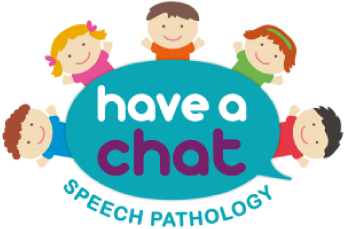Therapy Services
We provide services to children and adults of all ages with the following communication difficulties.
- Articulation refers to your child’s ability to use their lips, tongue and other facial muscles to produce speech sounds clearly. As children develop, they can experience a range of difficulties and errors in their speech sound production. Children are expected to develop different sounds at different ages. A delay in speech sound production might occur if a child continues to make errors in their speech past the expected age of acquisition.
- Our clinicians can help your child learn how to make speech sounds accurately to increase their intelligibility and confidence when speaking.
- Childhood Apraxia of Speech refers to difficulty in coordinating muscles
- of the face and neck to produce clear speech. This can occur due to errors in the way messages are sent from the brain to the muscles involved in speech.
- Our clinicians can help your child plan and make the motor movements needed to produce clear speech sounds, words and phrases.
- Stuttering refers to the disruptions of speech through hesitation and/or repetitions of sounds, words or phrases (e.g. p-p-play…, I want-want-want to…, I saw the-I saw the-I saw the giraffe…). Stuttering may also involve the stretching of sounds (e.g. sssssnake), the over-use of words such as ‘like’ or ‘ummm’, or other non-verbal behaviours (e.g. sharp breaths, blinking, facial grimacing).
- Our clinicians are trained in the Lidcombe Program which is an evidence-based behavioural treatment for children who stutter.
- Receptive Language refers to your child’s ability to understand written and spoken language. Receptive Language skills are used in activities such as following instructions, understanding questions and the thread of conversation.
- Expressive Language refers to your child’s ability to use spoken language to convey a meaningful message (e.g. using the correct sentence structure, or the appropriate word).
- Our clinicians can help improve your child’s ability to understand language and express their thoughts to enhance everyday communication.
- Social skills refer to your child’s ability to use language to interact with others. This may include greeting people (e.g. “hello” or “goodbye”), making requests (e.g. “can I please have a chocolate?”), turn taking and using appropriate facial expressions and eye contact. Our clinicians can help increase your child’s understanding and use of the unspoken rules of communication.
- Literacy encompasses the reading, writing and spelling skills required for communication. It involves knowledge of the smaller ‘units’ of sounds that make up words, sound manipulation, blending and segmenting of sounds in words and common spelling rules. Literacy plays a key role in your child’s schooling and everyday life.
- Our clinicians are trained with the Sounds Write Program which is an evidence-based program focusing on key reading, spelling and writing skills which are essential for communication and academic success.
- A child with a developmental delay may reach speech, language and communication milestones later than other children their age. This can impact your child’s ability to understand language, express their thoughts and their overall communication.
- A child with a developmental delay may reach speech, language and communication milestones later than other children their age.
- Our clinicians can help your child develop the skills required to understand language, express their thoughts, and for their overall communication and wellbeing.
- Children with Autism Spectrum Disorder (ASD) or Pervasive Developmental Disorder-Not Otherwise Specified (PDD-NOS) may have difficulty with communication and social skills. This may impact your child’s ability to understand words and gestures, follow directions, demonstrate joint attention, turn-take during play, speak or have a conversation.
- Our clinicians can help build your child’s communication and social skills or introduce them to alternative and augmentative communication (AAC).
- Adults may require the services of a speech pathologist following a stroke, traumatic brain injury or due to a neurodegenerative disease (e.g. Parkinson’s disease, Huntington’s disease). Our clinic provides inpatient and outpatient services to adults with speech, language or swallowing difficulties.


Assessments
If your child is not meeting their developmental milestones and/or is having difficulty with any of the following areas it is recommended that you contact our speech pathologist to discuss your concerns.
- Using grammar
- Following instructions
- Producing sentences
- Clearly articulating their words/sounds
- Literacy (reading, spelling and writing)
- Completing school work
- Stutter or fluency
- Social skills/playing with other children
- Answering questions and understanding stories.
